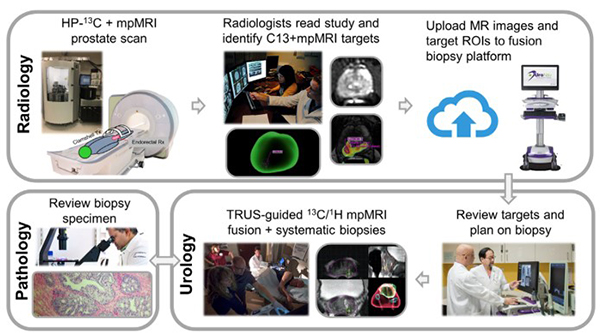The accuracy of biopsy sampling, which can miss clinically significant tumors, limits our ability to detect prostate cancer extent and aggressiveness. MRI-guided ultrasound fusion biopsies can improve accuracy, but often the standard-of-care MR images can miss some tumors and are not reliable for determining aggressiveness. Investigators from the Hyperpolarized MRI Technology Resource Center (HMTRC) at UCSF set out to study whether hyperpolarized (HP) pyruvate MRI can a) detect cancer based on its metabolic reprogramming and b) whether it can assess tumor aggressiveness.

“Our recent publication describes the first project to utilize HP pyruvate MRI in combination with anatomic and diffusion MRI to benefit biopsy guidance for prostate cancer patients,” says radiologist Z. Jane Wang, MD, medical director of the HMTRC. Findings from this proof-of-concept work were recently…

























